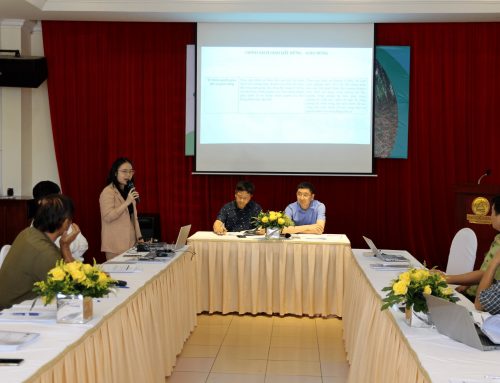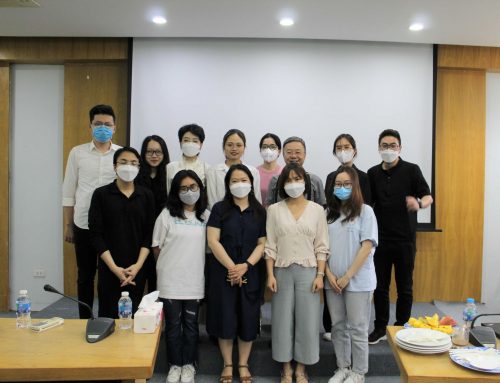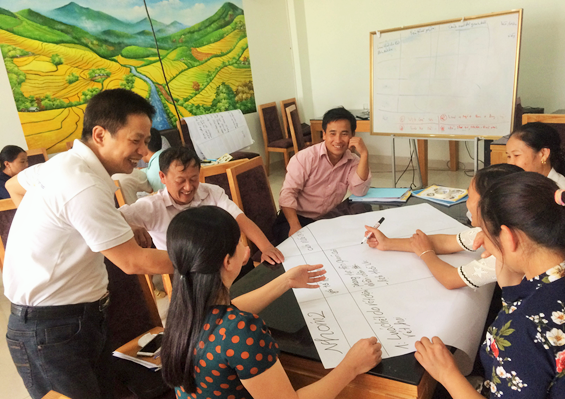
In September 2017, The Consultative Institute for Socio-Economic Development of Rural and Mountainous Areas (CISDOMA) in cooperation with Tam Duong District People’s Committee (Lai Chau province) and Nga Nam District People’s Committee (Soc Trang province) organized two training courses on climate change and its impacts on local livelihoods in two project areas. These trainings are part of the activities under the project “Adaptive livelihoods for food security and climate resilience of vulnerable communities in Vietnam” funded by Bread for the World (BfdW) with co-funding from The Australian Foundation for the Peoples of Asia and Pacific (AFAP) and local funds.
The trainings aim to improve awareness and understanding of local officials and vulnerable groups on climate change and its impacts on local livelihoods/agriculture. Participants to these trainings are district and communal officials, representatives from vulnerable communities.. Besides providing basic knowledge on climate change and the impacts, specific focus will be on the topics that relevant and links to local context and people livelihoods.
In the training, participants were facilitated to discuss on the phenomena of climate change in the locality and the impacts of these climatic phenomena on local agriculture, livelihoods. Participants also discussed on the difficulties of applying the adaptive agriculture practices and the measurement to address the issues.
In Tam Duong district, the training focused on analyzing the impacts of drought and extreme cold weather, that affects the district the most. According to Agriculture and Rural Development Division of Tam Duong district, the unexpected cold wave from 22/1 until 30/01/2016 caused heavy damages to people, property and agricultural production. Consequently, 133.296 hectares of rice; 128.045 ha of maize; 1373.52 hectares of cardamom were recorded to be affected, 276 cattle killed by the cold weather in Tam Duong district.
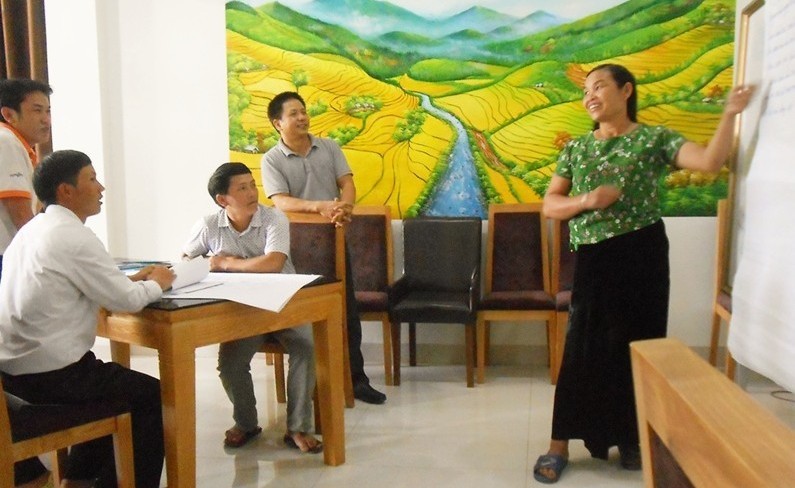
Participants actively discussed after group presentation
After the training, Mr. Quang Van Thoc, extension officer of Binh Lu commune (Tam Duong districts) shared: “At first I did not understand about climate change, found the content a bit distant. At the end of the training, I know more about climate change and its impact. I found it very helpful for my work. I thought that the livestock don’t affect, after the training, now I know the harmful environmental effects of emissions from livestock. I wish the training would lasted longer”.
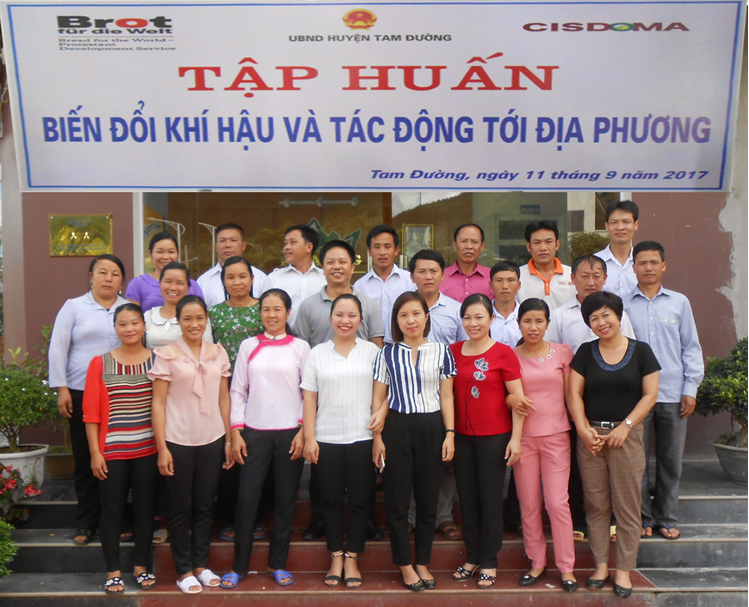
Picture of participants in Tam Duong district
In Nga Nam district, the main topics of discussion were salt intrusion and drought. According to the climate change respond action plan of Soc Trang, there will be 948.20 – 1176 ha of agriculture land in Nga Nam district might be submerged if sea level raised by 75 cm. Low – lying terrain is flat and lead to poor drainage, frequently flooding situation and in the rainy season, while there is severe shortage of fresh water due to salinity intrusion in the dry season.
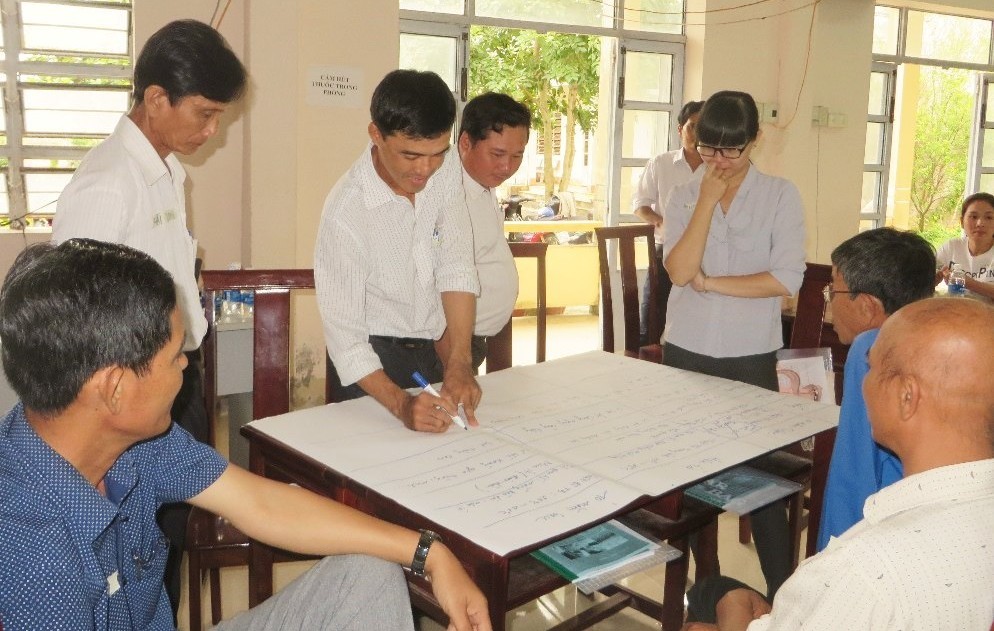
Participants discuss in group
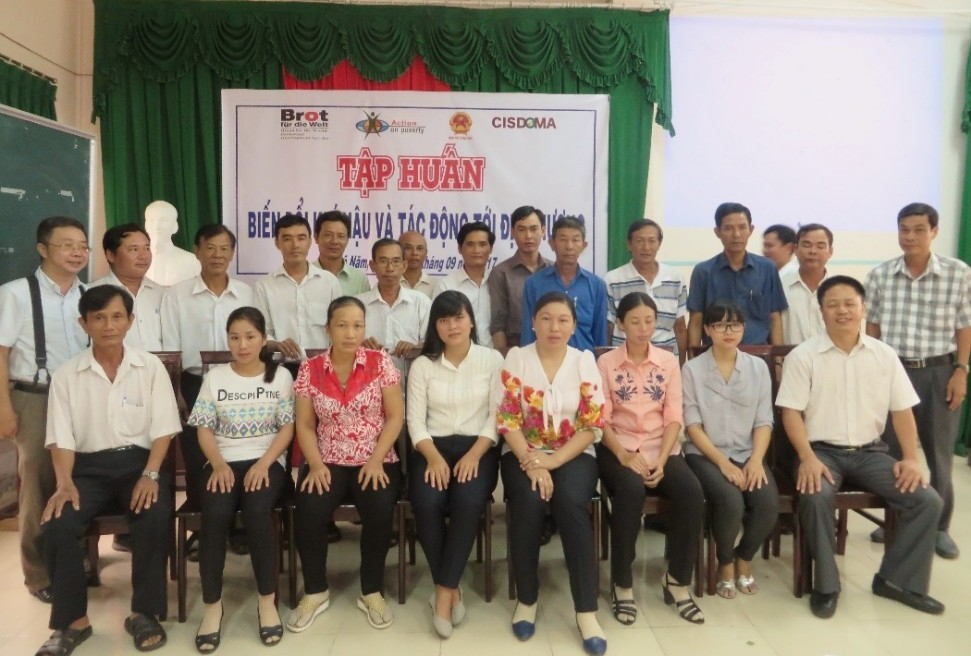
Picture of participants in Nga Nam district
These trainings were the very first activities of the project “Adaptive livelihoods for food security and climate resilience of vulnerable communities in Vietnam” under the guidance of Mr. Truong Quoc Can – expert from CISDOMA, applying learners-centered method, focusing on the combination of information provision and facilitating group discussion about the practical cases. With this participatory approach, the participants actively engaged, discussed and exchanged their knowledge and understanding on the training subject.

